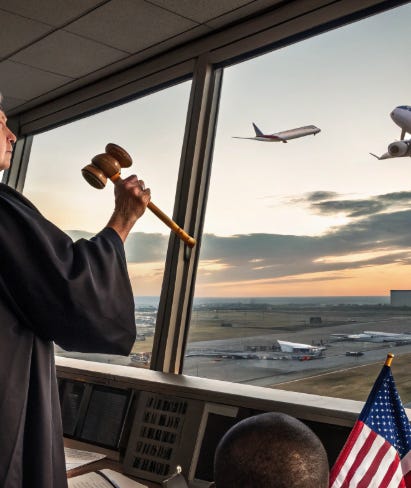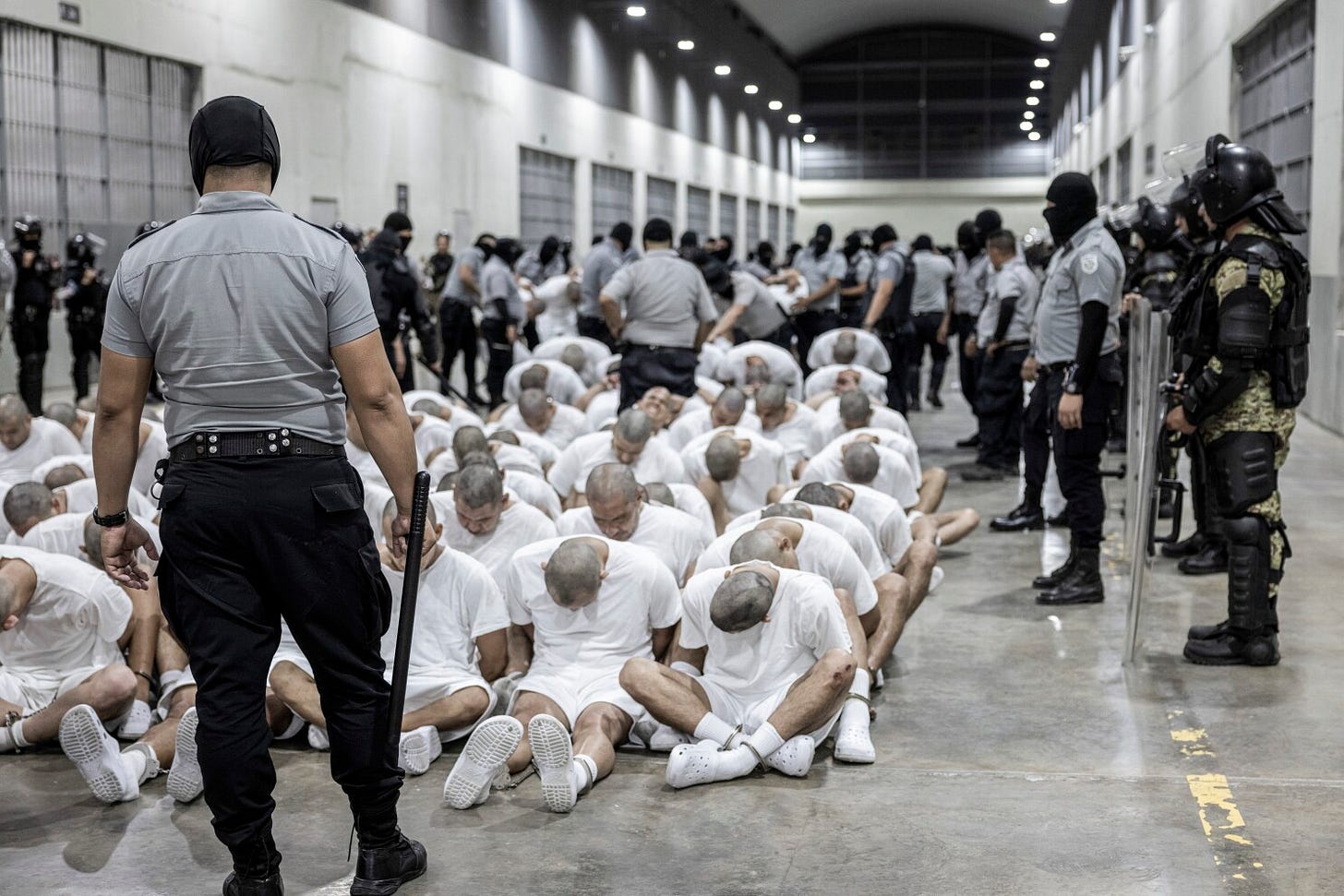Top 20 Times Democrat Activist Judge Boasberg Overruled America
The Coup is Coming From Inside the Judicial House
In an era when the line between judicial interpretation and raw political power has never been thinner, one federal judge stands at the epicenter of America's most explosive constitutional battles.
Judge James Boasberg's courtroom has become ground zero for decisions that have halted presidential initiatives, redirected national security policies, and sparked furious debates about the proper role of the judiciary in our republic.
From ordering deportation planes to turn around mid-flight to handing down suspiciously selective sentences, Boasberg's rulings have left legal scholars stunned and ordinary Americans wondering who truly governs the nation—elected officials or unelected judges wielding gavels like scepters.
As impeachment whispers grow louder in Washington's corridors, this definitive account exposes the twenty most controversial decisions that have transformed one judge's bench into what I call a throne of constitutional abuse.
Blocking Trump's Use of the Alien Enemies Act (2025)
Issued temporary restraining order halting deportations under the 1798 Alien Enemies Act
Intervened directly in executive national security and immigration decisions
Raised significant separation of powers concerns regarding Article II authority
Because apparently a 227-year-old law is suddenly "unconstitutional" the moment it's used by an administration this judge doesn't fancy. Funny how judicial discovery works when convenient.
2. Ordering Deportation Planes to Return (March 2025)
Verbally commanded airplanes to turn around mid-flight during deportation operations
Extended judicial authority beyond U.S. airspace in unprecedented fashion
Created immediate operational chaos for federal immigration enforcement
Nothing says "judicial restraint" like a judge who thinks he's air traffic control for planes that have already left American jurisdiction. Who needs borders when you have bench orders?
3. Conflict with Trump Administration Over Deportation Flights
Demanded detailed flight information from the executive branch
Sparked constitutional showdown when administration defied his orders
Pushed traditional boundaries between judicial oversight and executive function
Apparently Article III now grants judges the power to micromanage executive flight schedules.
4. FISA Court Role in Carter Page Surveillance (2014-2021)
Oversaw Foreign Intelligence Surveillance Court during critical FBI surveillance applications
Failed to prevent submission of inaccurate FISA applications targeting Trump campaign figure
Questions remain about adequate safeguarding of Fourth Amendment protections
Shocking how judicial scrutiny becomes mysteriously nearsighted when reviewing surveillance of certain political campaigns. Some constitutional violations are more equal than others.
5. Light Sentence for Kevin Clinesmith (2021)
Sentenced FBI attorney who falsified evidence to mere probation
Showed unusual leniency toward government misconduct in politically charged case
Undermined accountability for officials who abuse power
Nothing deters future government misconduct quite like the harsh punishment of... checking in with a probation officer. The scales of justice apparently work on a sliding scale depending on which administration you served.
6. Hiding Archey Declarations (2018)
Allegedly suppressed FBI admissions regarding James Comey's memo intentions
Limited transparency in high-profile government misconduct case
Potentially concealed evidence of political bias in federal investigations
Transparency in government is essential—except when it might reveal uncomfortable truths about Deep State operatives.
7. Ruling on Clinton Emails (2016)
Ordered limited release of Hillary Clinton's emails in Judicial Watch case
Set parameters that critics viewed as favorable to government secrecy
Questions raised about consistent application of disclosure standards
Remarkable how judicial concerns about "national security" emerge with perfect timing to shield certain political figures while vanishing entirely for others. Coincidence, surely.
8. Dakota Access Pipeline Shutdown (2020)
Ordered operational pipeline emptied pending environmental review
Intervened dramatically in energy infrastructure already approved by regulators
Created potential Fifth Amendment property rights concerns
Who needs stable energy policy when a single judge can empty an entire pipeline on a whim? The Constitution's protection of property rights makes a convenient doormat for judicial activism.
9. Jan. 6 Grand Jury Oversight (2023)
Supervised grand jury proceedings related to Trump's actions
Faced allegations of political bias due to Obama appointment
Central role in highly divisive investigation raised impartiality questions
Strange how judges appointed by Democratic presidents keep finding themselves overseeing cases against Republican figures. The statistical improbability of this coincidence would make a mathematician blush.
10. Mike Pence Testimony Order (2023)
Compelled former Vice President to testify about January 6th events
Issued ruling that narrowed scope of executive privilege protections
Created new precedent for forced testimony from executive branch officials
Executive privilege apparently expires the moment it might protect someone from the wrong political party. I believe the Founding Fathers would be revolted at this selective reading of separation of powers.
11. Ray Epps Probation Sentence (2024)
Issued unusually lenient sentence to controversial January 6th participant
Decision contrasted sharply with harsher penalties for similar defendants
Fueled public perception of two-tiered justice system
Nothing says "equal justice under law" quite like giving probation to certain defendants while others rot in prison for the same offense. Some people just win the judicial lottery, don't they?
12. FISA Court Presiding Judge During FBI Criticism (2020-2021)
Led Foreign Intelligence Surveillance Court during period of significant FBI abuses
Failed to implement adequate reforms following documented surveillance violations
Questions remain about accountability measures under his watch
Remarkable how a judge can oversee systematic abuse of surveillance powers and face zero consequences. If only the rest of us could fail so spectacularly at our jobs and keep them.
13. Osama bin Laden Photos Ruling (2012)
Denied public access to bin Laden death photos under FOIA
Prioritized government secrecy claims over press and public transparency rights
Created precedent limiting First Amendment access to significant historical documentation
The First Amendment apparently comes with an asterisk: "transparency applies except when judges decide the public shouldn't see something."
14. Asylum Seeker Detention Limits (2018)
Blocked prolonged detention of asylum seekers contrary to executive policy
Established judicial limitations on immigration enforcement authority
Potentially encroached on Congressional authority over immigration
Impressive how quickly detention policy transformed from a legislative function to a judicial one. Who needs Congress when judges can just rewrite immigration law from the bench?
15. Medicaid Work Requirements Block (2019)
Struck down New Hampshire's Medicaid work requirements
Overruled state-level policy decisions on welfare program administration
Raised federalism concerns regarding state authority over benefits programs
Federalism is a sacred principle—until a judge disagrees with a state's policy choices. Then suddenly states' rights vanish faster than judicial restraint at a robed activists' convention.
16. Alleged Bias in Jan. 6 Cases
Faced accusations of withholding exculpatory evidence from defendants
Claims emerged regarding allowance of potentially biased juries
Questions raised about due process protections in politically charged cases
Due process is apparently optional when defendants have the wrong political views. The Constitution's guaranteed protections come with fine print only Democrat judges can see.
17. Trump Impeachment Threats (2025)
Rulings against deportation efforts prompted Congressional impeachment discussions
Created tension between judicial independence and perceived partisan intervention
Raised questions about appropriate boundaries of Article III authority
Nothing demonstrates judicial independence quite like consistently ruling against one administration while facing zero consequences. It's almost as if there's a pattern no one's allowed to notice.
18. Conflict of Interest Allegations
Faced claims that family connections to immigration NGOs created bias. His daugher Katharine Boasberg works as a "capacity-building associate" for Partners for Justice, a nonprofit organization that provides legal support and advocacy for individuals facing criminal charges, including undocumented immigrants and gang members.
The organization opposes mass deportations and has been vocal against legislation targeting criminal gangs, such as the Laken Riley Act. It reportedly receives a significant portion of its funding—around 76%—from U.S. government grants, including those tied to USAID
This connection has led to allegations that Judge Boasberg’s rulings could indirectly benefit his daughter’s career or the organization’s funding, raising questions about his impartiality and recusal standards in immigration cases
Recusal is for lesser judges who can't be trusted to set aside personal connections. True judicial enlightenment is ruling on cases where your family has direct interests while claiming complete impartiality
19. Observation of Trump's Court Appearance
Allegedly attended Trump's D.C. court proceedings while on vacation
Sparked concerns about personal animus influencing judicial decisions
Raised questions about appearance of impartiality in related cases
Nothing says "impartial arbiter of justice" quite like taking personal time to watch your judicial target squirm in another court. Apparently judicial ethics is more of a suggestion than a requirement.
20. Historical Precedent Rejection (2025)
Argued no precedent existed for Alien Enemies Act deportations absent declared war
Dismissed executive's national security discretion during emergencies
Potentially misaligned interpretation with constitutional intent
Precedent matters deeply—until it supports the wrong administration. Then suddenly judges discover new constitutional principles hidden for 235 years that conveniently align with their political preferences. Magical jurisprudence indeed.
From a perspective prioritizing judicial probity, this list highlights a pattern of decisions that center on exceeding constitutional limits, favoring political outcomes, or lacking consistency. Actions like the deportation flight orders and FISA oversight raise questions about adherence to separation of powers and Fourth Amendment protections. Perceived leniency in cases like Clinesmith’s or Epps’s, contrasted with harsher Jan. 6 rulings, feeds accusations of selective justice, eroding trust in judicial fairness.
It is time that:
(a) President Trump strips Boasberg of his security clearances for his FISA abuse failures;
(b) Congress compels his testimony regarding his conflicts of interest, his longstanding political activism, and years of failing to adhere to the Code of Conduct for United States Judges.









Interesting remark from @TheLastRefuge2 - "Remember, the DOJ-NSD (group that assembled and submitted FISA) had no oversight, no inspector general looking over their shoulder. Trump changed that and gave OIG Horowitz oversight.
Justice Roberts then puts Boasberg as Presiding over FISC. Boasberg then picks Mary McCord as amicus to assist the court with review of info from Horowitz.
In essence, McCord submitted fraudulent FISA to Boasberg who approves it. Boasberg then selects McCord as amicus to filter Horowitz info about the fraudulent submission he approved.
Topping all of this.... McCord's husband was working at top level of Justice Robert's office.
THEY ARE ALL ****ING CONNECTED !" -- via https://x.com/TheLastRefuge2/status/1902214279534932355
Thank you for this list. Why is he still on the bench? All judicial appointments should be term limited.
Would someone physically in D.C. please print this out (9 copies) and hand carry to the United States Supreme Court? I would, but I’m not in the Deep State swamp.
Also, my message to John Roberts, “Before you lecture people who want to discuss ‘impeachment’ quit worrying about receiving cocktail invitations and get your own house (the U.S. Federal Courts ) in order.